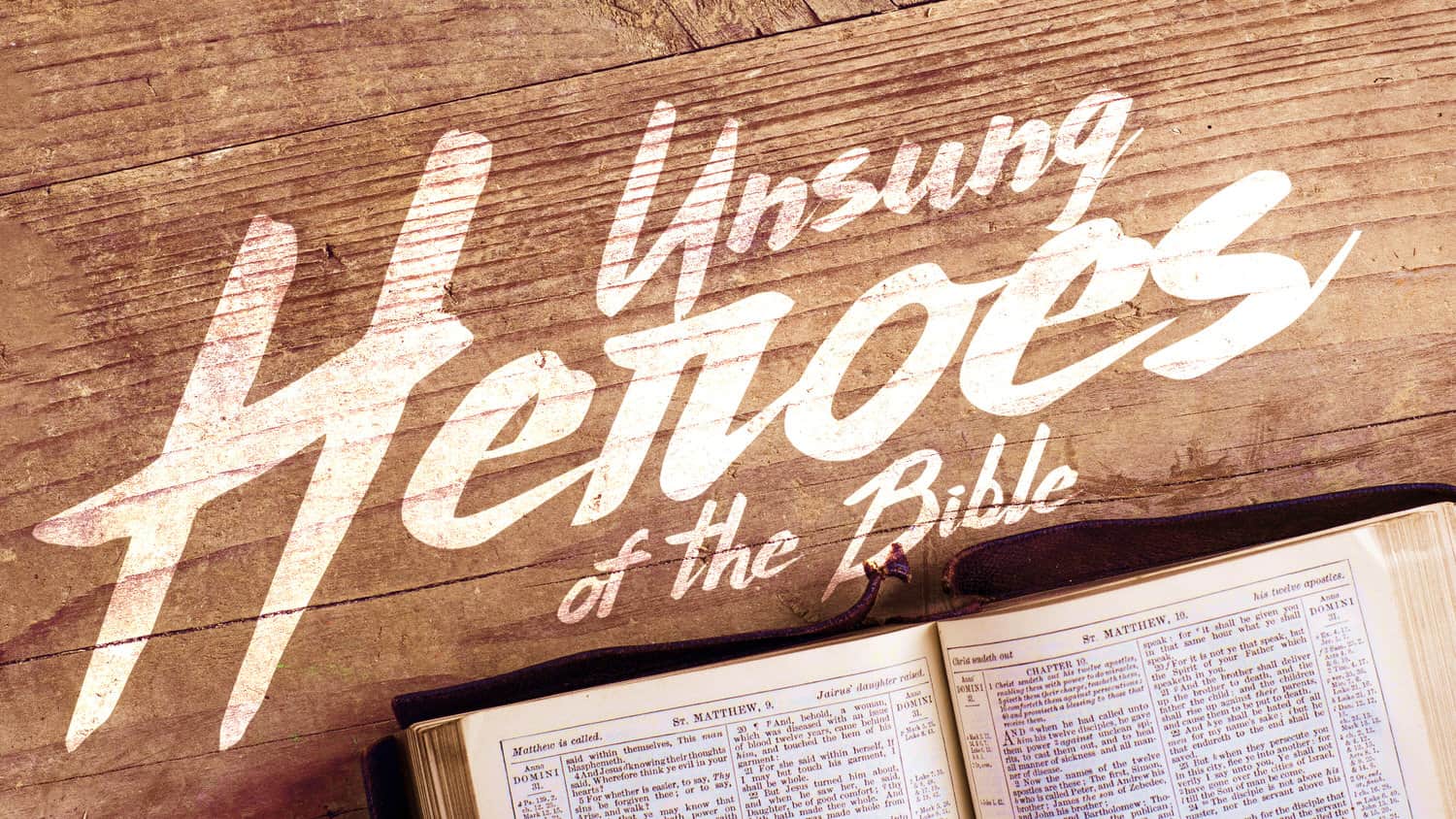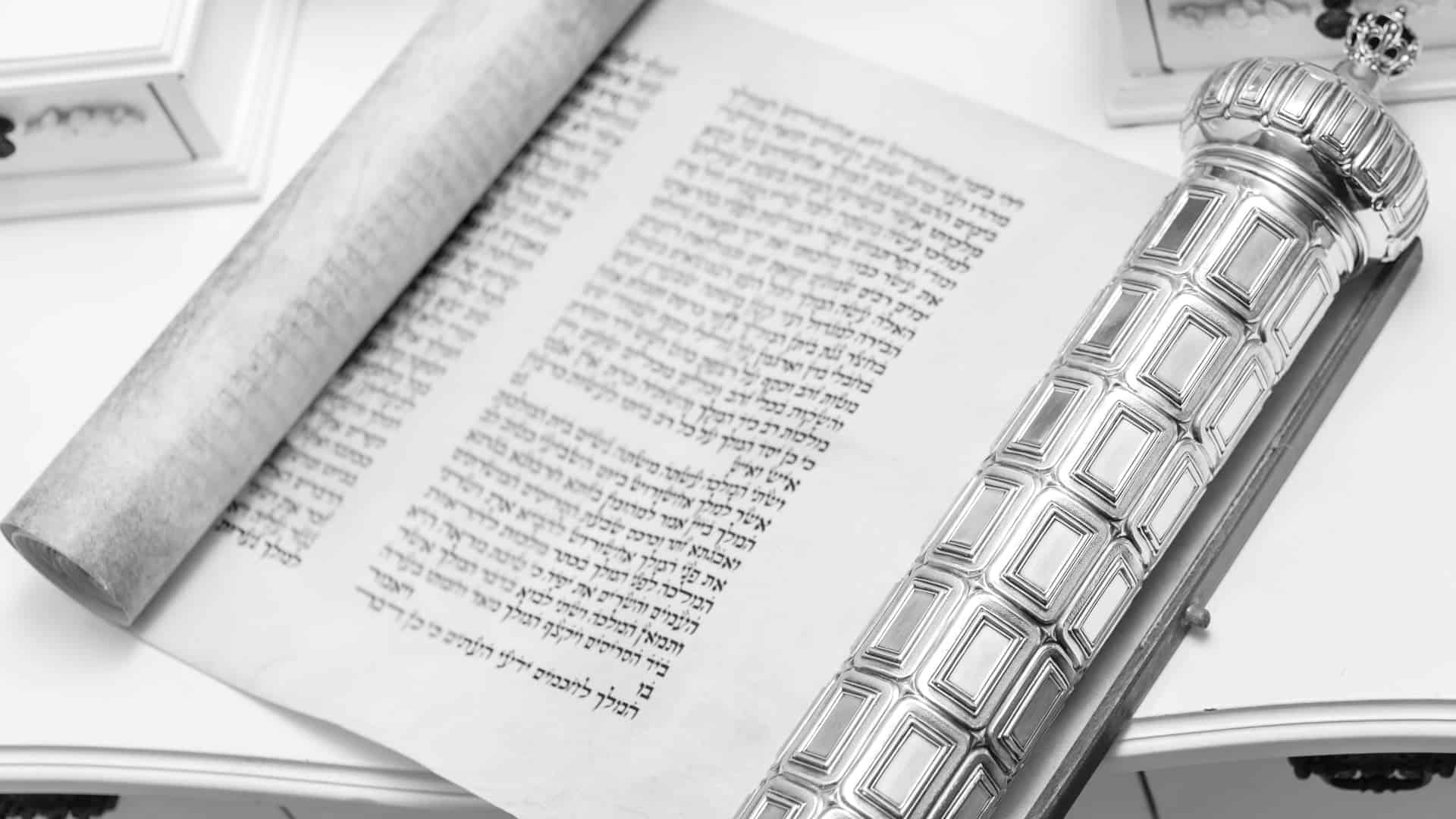Unsung Heroes: Mordecai (Esther)

Big Idea: God always accomplishes his purposes, even in complicated times and with imperfect people.
It’s an odd and exciting book of the Bible for a number of reasons:
- It involves drunkenness sex, and murder
- It never mentions God directly
- It includes some very imperfect characters
- And there are all kinds of ironic reversals and plot twists
It is the book of Esther.
What I want to do is to give you a brief overview of the story, and then I want to look at an unsung hero in the story: Mordecai, uncle of the main character, and someone who has a lot to teach us.
You see, we live in dangerous times. It’s not really culturally acceptable to follow God, and it’s certainly not comfortable to make decisions that go against the flow. What can we learn from this man who lived in a very dangerous time in a culture that was anything but safe for one of God’s people? We’re going to learn some helpful lessons from the story of Esther and her uncle, a man named Mordecai.
A Story Set in Perilous Times
So here’s the story.
The nation that God chose is living in exile in Susa, the capital of the Persian Empire. They’re 1,500 kilometers from home. The first wave of exiles has already returned back home to Jerusalem, but they’re stuck in a foreign city, and they’re in a lot of danger.
Xerxes, the king of Persia, holds a feast. We’re talking about a 187-day feast. Things get so out of hand that, on the last day, he decides to parade his wife before the drunken guests. She refuses, and like a typical despot he divorces her to make an example out of her. He then decides to hold a beauty contest to find himself a new wife.
And that’s where Esther comes in. Esther is one of the Jewish exiles. She’s one of God’s people trying to faithfully live under incredible pressure. And she not only enters the pageant, but she wins it. Here’s where things get a bit murky. First, she hides her identity as a Jew. Second, she — like all the other contestants — has to become part of the king’s harem and spend a night with the king. It gets pretty complicated.
But the story’s just beginning. Mordecai, Esther’s uncle, saves the king’s life and is elevated. Haman, a Persian official, notices that Mordecai won’t pay him homage, and decides to kill all the Jewish people. At Mordecai’s urging, Ester approaches the king, reveals that she’s Jewish, and asks the king for permission for the Jewish people to defend themselves. Haman is executed on the very gallows that he’d set up to kill his enemies.
It’s quite a story. If you’ve never read it before, I encourage you to do so. It’s a masterpiece of suspense and drama. As I’ve already said, it’s full of a lot of drinking, as well as anger, sex, and murder. And in the middle of it all are two significant characters: Esther and her uncle Mordecai.
What can we learn from Mordecai?
Lessons from Mordecai
We live in complicated times.
Witness what they went through. From beginning to end Mordecai and Esther were in danger. They faced huge questions:
- How do you live faithfully in a hostile culture?
- How do you navigate murky ethical boundaries in the middle of enormous pressure?
- When culture threatens God’s people, how should we respond?
I don’t mean to pretend that we live in exactly the same circumstances today. But a lot of people are realizing that just as Mordecai and Esther lived in exile, we live in exile today. We didn’t use to live in exile. There was a time when we were at home, when Christians had a lot of influence and control. No more. We now have to learn how to live as holy people in alien lands. We’re not the home team.
Exile isn’t just that we’re geographically removed. Exile is the condition of being in a hostile environment in which the dominant values are different from our own. As someone’s described it, “It is fair to say that the church is one of those former power brokers who once enjoyed a place of influence at the cultural table but has been chased away from its place of privilege and is now seeking to find where it belongs amid the ever-changing dynamics of contemporary culture” (The Church in Exile).
That’s where Mordecai lived, and it’s where we live today as well. We face a whole host of issues that would have been unimaginable even a few short years ago. I posted a question on Facebook: what are some examples of complicated ethical issues that we face today that we didn’t a few years ago? Here are some of the answers I got, as well as some others that came to mind:
- the use of gender-neutral pronouns
- the normalization of the use of marijuana
- acceptance of same-sex marriages
- end-of-life issues
The list goes on and on. A generation or two ago, you could assume many of the answers. Now we’re being forced to think carefully about them.
And the question is: how will we respond? That’s a big topic, and the book of Esther certainly doesn’t provide all the answers. In fact, quite the opposite. Esther points to how hard it is to figure this out. Esther teaches us that it’s really difficult to know how to respond when we live in the margins, and when we’re trying to figure out how to live faithfully in a culture that doesn’t sync up with a biblical worldview.
Before we could assume that there wasn’t much of a difference between the biblical worldview and culture’s view. That’s no longer the case. Some people choose to withdraw. Some people choose to just accommodate the world’s views. Those are both relatively easy. But how do we choose the third and much harder option: to remain engaged in the world while staying faithful to God? That is a much harder alternative, and yet it’s our calling. Books like Esther can help us wrestle through this.
How do we live in this world without retreating from it? How do we stay both faithful and engaged? Esther doesn’t give us the answers, but it reminds us that it’s complicated. If you’re feeling like it’s complicated and that the answers aren’t easy, you’re exactly right. That’s exactly what it feels like to live in exile. This is an issue we’re already facing, and it’s only going to increase in the coming years. This story reminds us that we live in complicated times. We’re called to live out this command from 1 Peter:
Beloved, I urge you as sojourners and exiles to abstain from the passions of the flesh, which wage war against your soul. Keep your conduct among the Gentiles honorable, so that when they speak against you as evildoers, they may see your good deeds and glorify God on the day of visitation. (1 Peter 2:11-12)
We’re called to live in a culture that doesn’t honor God, to stay engaged, and to remain faithful. That’s our calling, and it’s not easy.
Here’s the second lesson.
We are imperfect people in need of God’s grace.
There’s a lot to like about Mordecai in this story. He ends up playing a major role in saving God’s people. First off, you have to admire Mordecai for raising Esther when her parents die. That makes me like him right away. We can also admire him for saving the king. You have to do something right to rise through the ranks like Mordecai did.
When Mordecai learned of the plot against the Jews, he had to get creative to get Esther’s attention. He did, and it worked. He also gave her wise counsel. He said the most inspiring words we read in the entire book: “And who knows whether you have not come to the kingdom for such a time as this?” (Esther 4:14). He rallies the Jews in the city to prayer and fasting while Esther prepares to talk to the king. Once the king grants Esther’s request, he authors the edict that saves the Jewish people. No wonder we read this at the end of the book:
For Mordecai the Jew was second in rank to King Ahasuerus, and he was great among the Jews and popular with the multitude of his brothers, for he sought the welfare of his people and spoke peace to all his people. (Esther 10:3)
There’s a lot to like about Mordecai. But there’s a lot that makes us wonder as well. Why does he tell Esther to hide her Jewish identity? If her Jewish identity had been known, Haman may not have asked to kill the Jewish people in the first place, and the king probably wouldn’t have allowed it. Why does Mordecai refuse to pay homage to Haman? It seems strange. It wasn’t because Haman expected worship; he was just expecting honor, like when we’re asked to rise when a judge enters the court. He may have had his reasons, but it seems strange.
Whatever you say about Mordecai and Esther, they don’t come off as great moral examples. They make some pretty questionable decisions. They skirt some commands in God’s law, like marrying Gentiles and possibly eating impure food.
What do you make about this? It’s here that we confront how we read the Bible. If we read the Bible as a story of God using good people, then the Bible becomes very confusing because there are very few good people in the Bible. The thing I love about stories like this is that they’re not about good people who get it all right. As someone’s said, a lot of “despicable people doing deplorable things” and as “trashy tales about dysfunctional characters.”
Tim Keller says:
The reader will be led to ask, again and again, “what in the world is this story doing in the Bible?” The answer is an important one—it is the gospel! … The Bible (unlike other faiths) is not about emulating moral examples. It is about a God of mercy and long-suffering who continually works in and through us despite our constant resistance to his purposes.
Hear this. It’s important:
God relentlessly offers his grace to people who do not deserve it nor seek it nor even appreciate it after they have been saved by it…The point is that the only true hero is God, the only true savior is the Lord. Judges is ultimately about grace abounding to chief sinners. God’s grace will triumph over the stupidest actions.
This is very good news for us!
A lot of people think that church is about a good person telling good people how to be good. It’s the very opposite of that. Church is about a sinner telling other sinners of a gracious God who chooses to graciously save his people and to accomplish his purposes even in our weakness. That’s the good news of the gospel.
The good news of the Bible is this:
And you were dead in the trespasses and sins in which you once walked, following the course of this world, following the prince of the power of the air … But God, being rich in mercy, because of the great love with which he loved us, even when we were dead in our trespasses, made us alive together with Christ—by grace you have been saved— and raised us up with him and seated us with him in the heavenly places in Christ Jesus, so that in the coming ages he might show the immeasurable riches of his grace in kindness toward us in Christ Jesus. For by grace you have been saved through faith. And this is not your own doing; t is the gift of God, not a result of works, so that no one may boast. For we are his workmanship, created in Christ Jesus for good works, which God prepared beforehand, that we should walk in them. (Ephesians 2:1-10)
We live in complicated times. We are imperfect people who need God’s grace. There’s one more lesson that Mordecai teaches us.
God will certainly deliver his people.
You’ve got imperfect people facing complicated issues. You’ve got one of the greatest dangers: the possible annihilation of all of God’s people in exile. And God’s name isn’t even mentioned once.
But look more carefully. Esther teaches us that God is at work. His name is never mentioned, but he is very much the main character of the story, just as he is in ours.
When God’s people are in exile, and they don’t obey perfectly, and God seems absent, is he done with us? This story tells us no. God is at work in the mess of our lives, even in the middle of his unfaithful people. He will accomplish his purposes.
We can trust that God is at work even when we can’t see it. No matter how horrible things get, no matter how distant God seems, no matter how far we are from home, God is still at work. He will certainly deliver his people.
As I was finishing this message, Ray Ortlund, a pastor tweeted this:
In the book of Esther, God is everywhere present but nowhere mentioned. He is always present, even when we are oblivious.
Read that again, but bring it into today. In your life, God is everywhere present even when he’s not mentioned. He’s always present, even when we are oblivious.
God always accomplishes his purposes, even in complicated times and with imperfect people.
And so this is our hope today. I don’t know what you’re going through, but I’m pretty sure that your life is complicated. I’m pretty sure that you’re imperfect. And I’m 100% sure that God is working despite the complications and despite the failures.
If the message of the Bible was that God can only handle simple times and obedient people, we’d be in trouble. The message of the Bible, though, is that God accomplishes his purposes in the most complicated times and with the most imperfect people. And so he invites you to come to him today in your imperfection, to rest in what Jesus has done to rescue you, and to trust that he’s accomplishing just what he wants in your life for his glory and for your good.





